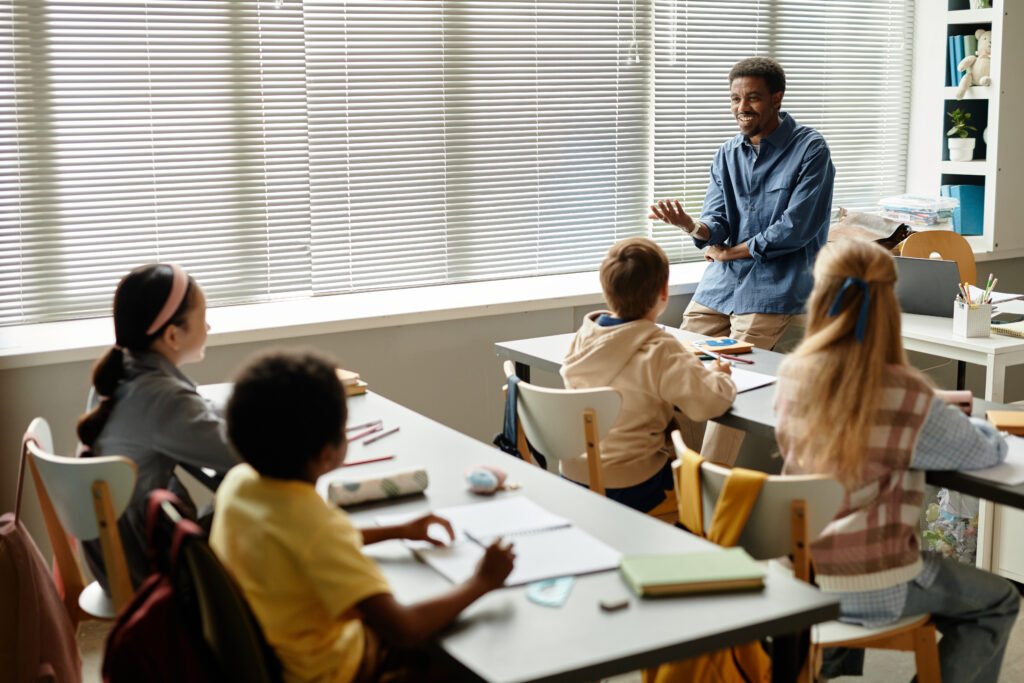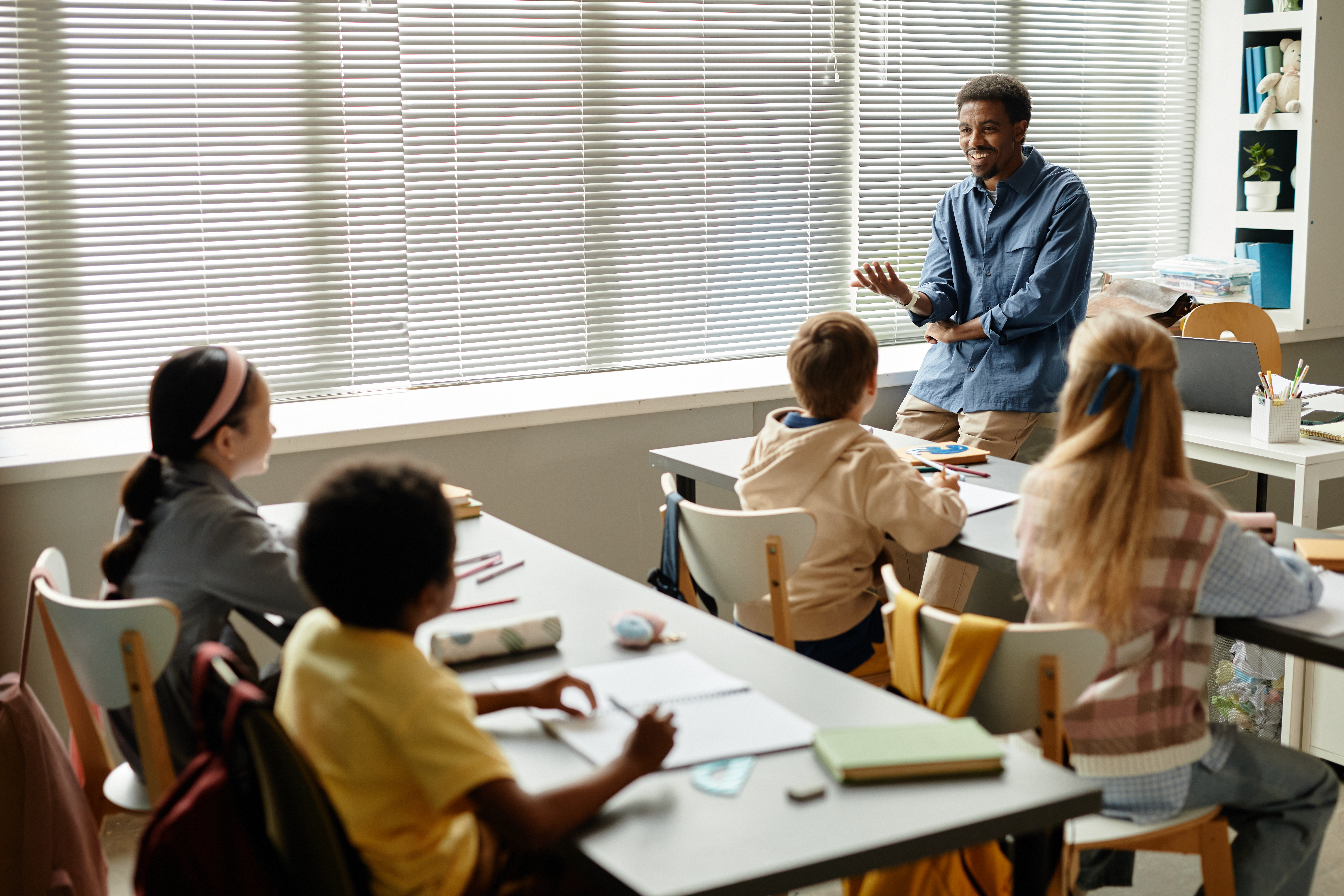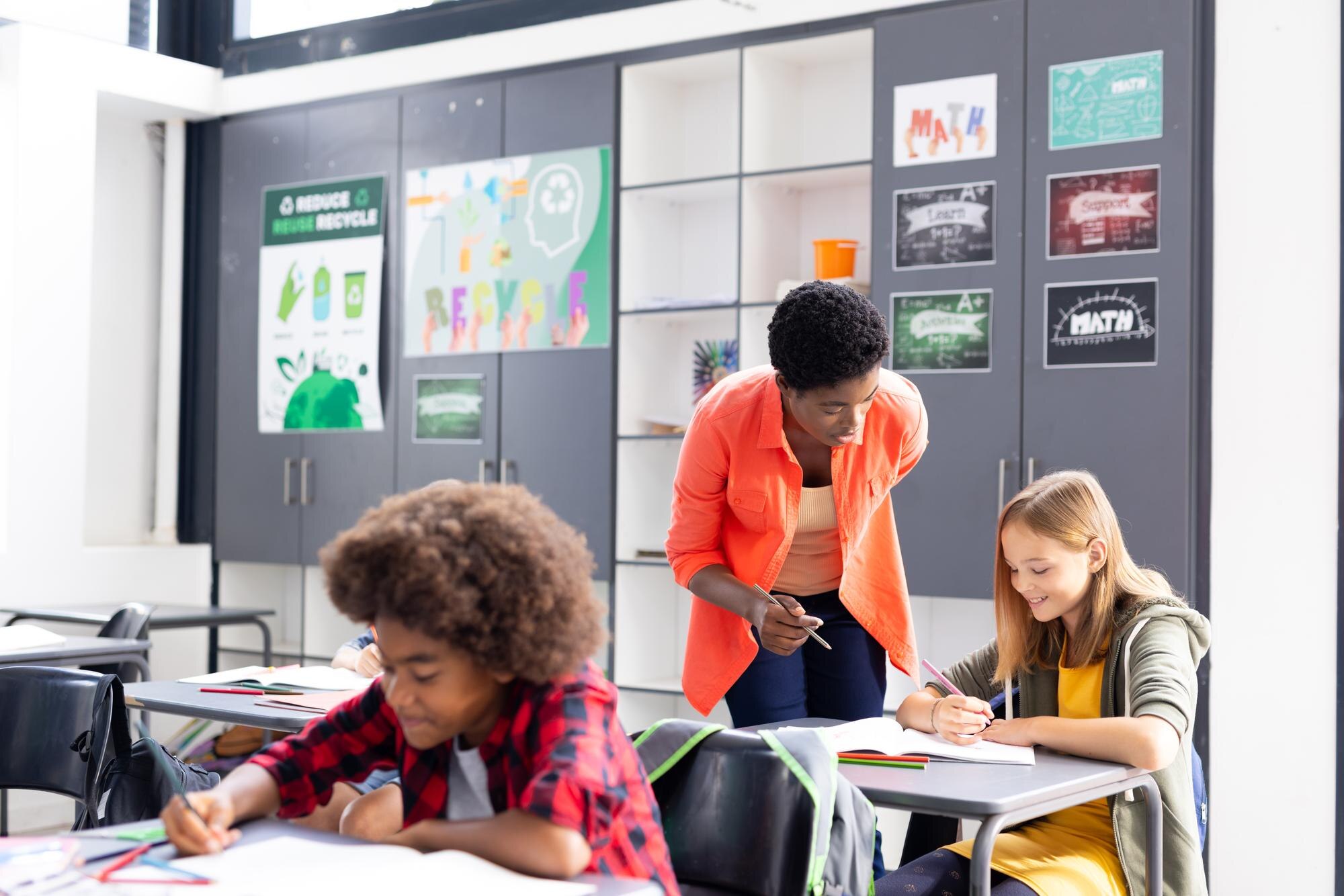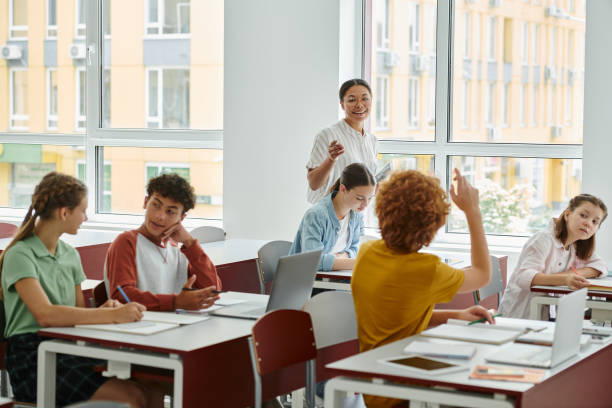
Wide angle shot of smiling male African American teacher talking to children in classroom with window blinds while explaining new topic at primary school, copy space
Building Resilience and Confidence: Top Strategies for Educators of Gifted Students
Gifted students often face a unique set of challenges that can leave them feeling overwhelmed and misunderstood. As educators, you hold the power to turn these challenges into opportunities for growth. Imagine equipping these bright minds with resilience and confidence, paving the way for their emotional well-being and academic success. In this post, you’ll uncover practical strategies to foster these essential traits in your students. Ready to transform your teaching approach and make a lasting impact? Let’s dive in. Learn more about building resilience in gifted students here.
Building Emotional Resilience

Building emotional resilience in gifted students is crucial for their overall development. These students often encounter unique challenges that require targeted support to help them thrive emotionally and academically. By understanding their struggles, encouraging emotional expression, and developing coping strategies, educators can make a significant impact.
Understanding Gifted Students’ Challenges
Gifted students face distinct challenges that can affect their emotional resilience. They often experience heightened sensitivity and perfectionism, which can lead to stress and anxiety. Recognizing these challenges is the first step in providing effective support.
For example, a gifted student might struggle with the pressure to excel academically while managing their emotions. Educators can benefit from resources like this guide to deepen their understanding of these challenges.
Key insights include:
Gifted students may feel isolated due to their advanced abilities.
They often fear failure, impacting their confidence and emotional health.
Understanding these dynamics helps in creating tailored strategies.
Encouraging Emotional Expression
Emotional expression is vital for gifted students to process their feelings and build resilience. Encouraging open communication can help them articulate their emotions more effectively.
A real-world example involves an educator who created a safe space for students to share their feelings. This approach, detailed in this blog, highlights the importance of providing emotional outlets.
Strategies to encourage expression include:
Hosting regular class discussions about feelings and experiences.
Providing creative outlets such as art or journaling.
Reinforcing that expressing emotions is a strength, not a vulnerability.
Developing Coping Strategies
Developing coping strategies enables gifted students to navigate their emotional landscape with confidence. By equipping them with tools to manage stress, educators can significantly enhance their resilience.
Steps to develop coping strategies:
Introduce mindfulness practices like meditation or deep breathing.
Teach problem-solving skills to address academic and personal challenges.
Encourage participation in extracurricular activities for stress relief.
These methods, as discussed in this article, can empower students to handle stress more effectively.
Fostering Confidence in Gifted Students

Confidence is an essential trait for gifted students, impacting their performance and emotional well-being. By celebrating achievements, setting realistic goals, and promoting self-reflection, educators can nurture their students’ confidence.
Celebrating Individual Achievements
Celebrating achievements helps build a positive self-image and boosts confidence in gifted students. Recognizing their unique strengths can motivate them to pursue their passions with enthusiasm.
Consider a case study where an educator implemented a personalized reward system. This approach, highlighted here, emphasizes celebrating small milestones.
Key takeaways:
Acknowledge academic and personal accomplishments.
Use praise as a tool to reinforce positive behaviors.
Encourage students to set personal goals and celebrate when they achieve them.
Setting Realistic Goals
Setting realistic goals helps students manage expectations and avoid the pitfalls of perfectionism. This practice ensures that gifted students remain motivated and engaged in their learning journey.
To implement this, educators can:
Work with students to define achievable goals.
Break larger tasks into manageable steps.
Regularly review goals to track progress and adjust as needed.
These strategies foster a sense of accomplishment, contributing to students’ confidence.
Promoting Self-Reflection
Self-reflection encourages gifted students to understand their strengths and areas for improvement. It is a powerful tool for building confidence and resilience.
Real-world example:
An educator introduced a weekly reflection journal, allowing students to assess their progress and emotions. This practice led to increased self-awareness and confidence.
Key points:
Encourage students to reflect on both successes and challenges.
Use reflection as a basis for setting new goals.
Foster an environment where self-assessment is seen as a growth opportunity.
Practical Strategies for Educators

Educators play a pivotal role in developing resilience and confidence in gifted students. By creating a supportive environment, implementing high-performance coaching, and encouraging collaborative learning, they can make a lasting impact.
Creating a Supportive Environment
A supportive environment is essential for nurturing resilience and confidence. It involves fostering a classroom atmosphere where students feel safe, respected, and encouraged to be themselves.
Steps to create a supportive environment:
Promote open communication and active listening.
Establish a culture of mutual respect and inclusivity.
Provide consistent encouragement and positive reinforcement.
These elements help build a foundation for emotional well-being and academic success.
Implementing High-Performance Coaching
High-performance coaching equips gifted students with skills to excel beyond academics. This approach focuses on holistic development, incorporating emotional and personal growth.
Actionable advice for implementing coaching:
Tailor coaching sessions to individual student needs.
Focus on developing both academic and non-academic skills.
Encourage goal setting and accountability.
By integrating these techniques, educators can support students in reaching their full potential.
Encouraging Collaborative Learning
Collaborative learning provides opportunities for gifted students to engage with peers, enhancing their social and emotional skills. It fosters a sense of community and shared learning experiences.
Benefits of collaborative learning:
Promotes teamwork and communication skills.
Encourages diverse perspectives and critical thinking.
Builds confidence through group achievements.
Educators can implement group projects and peer mentoring programs to facilitate collaboration, creating a dynamic learning environment for gifted students.

A certified Heal Your Life® Coach with 20+ years in education and emotional development. Supports gifted teens in navigating anxiety, perfectionism, and identity challenges, while equipping parents with practical tools for lasting transformation. Sessions blend emotional healing, mindset mastery, and strategic empowerment.



